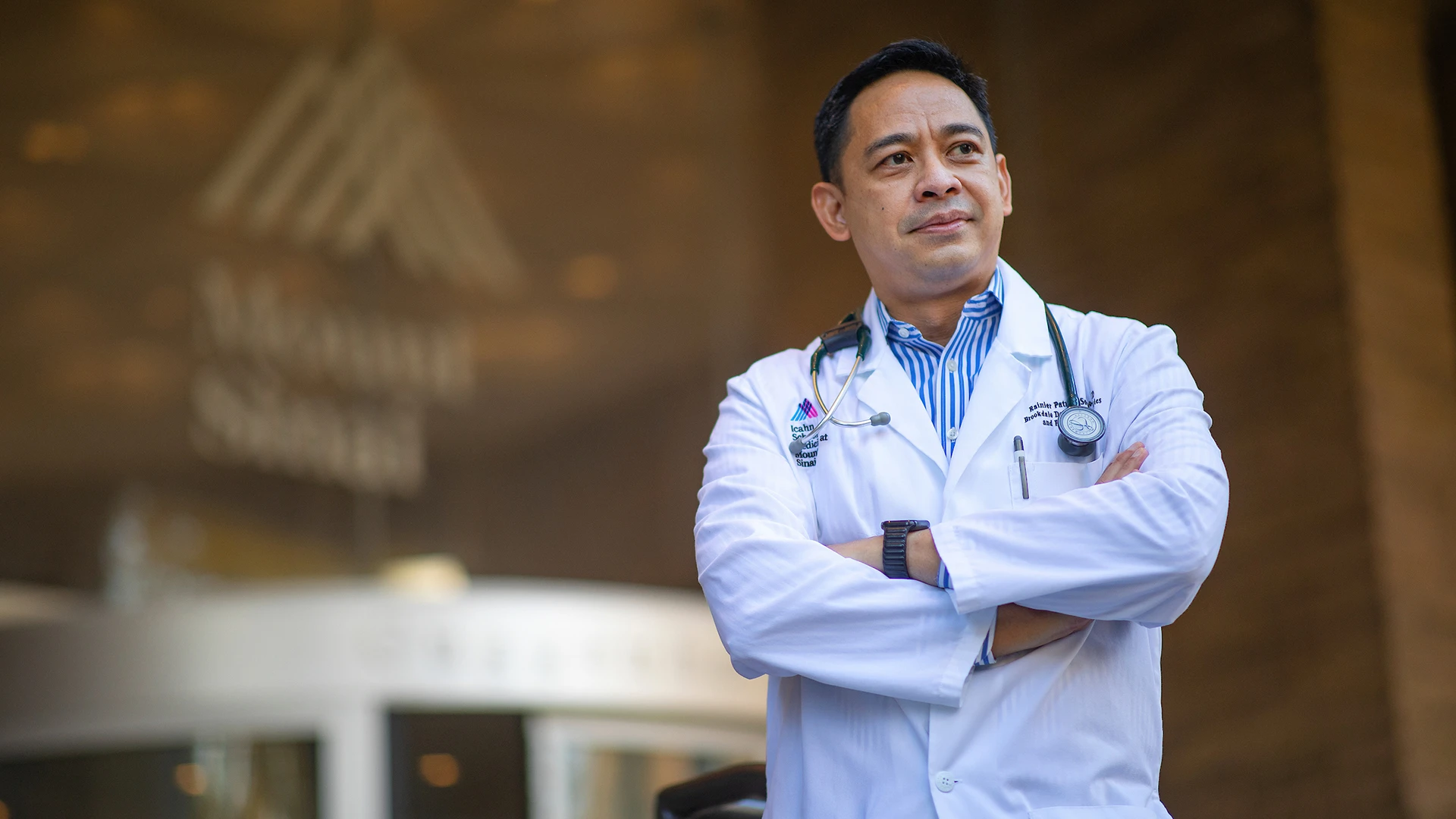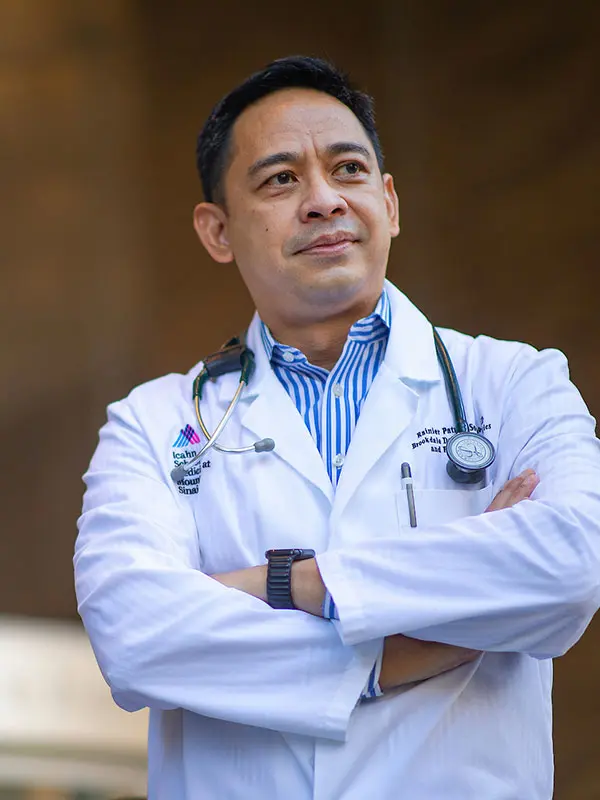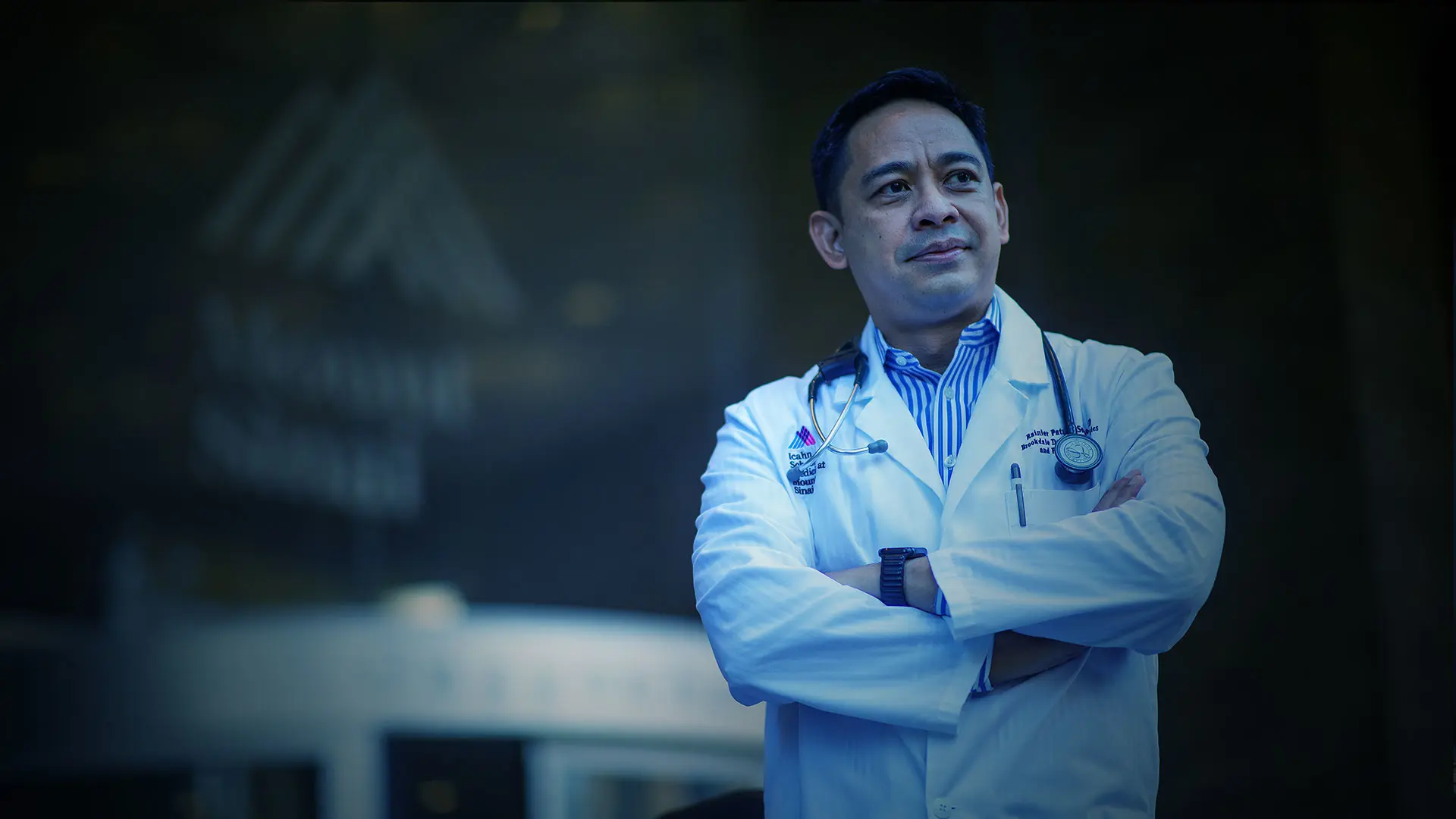In August 2021, after an extensive national search, Rainier P. Soriano, MD, was appointed Senior Associate Dean for Curricular Affairs at the Icahn School of Medicine at Mount Sinai. Board certified in Geriatrics Medicine, Dr. Soriano, a Professor in the Departments of Geriatrics and Palliative Medicine, Medical Education, and Medicine, has had a distinguished career as both a physician and educator.

Rainier P. Soriano, MD, Senior Associate Dean for Curricular Affairs at the Icahn School of Medicine at Mount Sinai
In his new role, Dr. Soriano will lead the effort to redesign the next iteration of the MD Program curriculum at Icahn Mount Sinai. In a wide-ranging interview, Dr. Soriano discussed his perspective on training the next generation of physicians and scientists while enhancing topics related to the care of older adults and persons with serious illness already present in the current curriculum.
What is your vision for the medical school as you lead the effort to update the curriculum?
Preparing the current and next generations of physicians and scientists requires responsiveness to public health and societal needs. One such issue is the health care inequities stemming from systemic racism and personal bias evident in the practice of medicine. Although these inequities are not new, improved integration of diversity, equity, inclusion, and anti-racism in medical education is critical. The current pandemic has underscored this need even more. My goal is to weave conversations about racism and other expressions of anti-oppression more intentionally into our instruction. For example, educators should incorporate discussions at appropriate times in their courses as to how systemic racism and bias informed the medical knowledge within the field and how they continue to permeate in health care delivery.
Of course, my vision also includes improving the standard set of expectations or outcomes related to the instruction of aging and palliative care at Mount Sinai. We are a national leader in these fields, so every medical school graduate has been fortunate to have these additional competencies in their instruction since the Brookdale Department’s establishment 40 years ago. My vision involves additional geriatrics and palliative medicine competencies related to systems-level changes, leadership, advocacy, policy change, and role modeling. These have been recent missions in the Brookdale Department, and alignment with the MD program curriculum is critical.
How will you go about this?
I honestly think our medical students are more woke than we educators. I believe that often we're playing catch-up to the younger generation who are ready to acknowledge that oppression exists and are always thinking of ways to address that. My goal is to align what our students and future physicians really demand from us as educators and create a curriculum that meets those demands. We hope these programs will be synergistic to ensure that when students go from medical school to the hospital to other sites within the Health System, they see and hear the same vision regarding efforts against the manifestations of oppression.
"My goal is to weave conversations about racism and other expressions of anti-oppression more intentionally into our instruction."
-Rainier P. Soriano, MD
An open discussion that acknowledges that manifestations of racism and other forms of oppression exist within the health care system and medical education is critical. That's the first step in the dialogue. Then we can determine how to address these challenges. For example, we need to train our medical students on how to respond to racist behavior exhibited by patients. That's been happening for years, but it’s been addressed without any formal training.
The MD Program at Mount Sinai has the expertise that I will be tapping into. The school started the Racism and Bias Initiative (RBI) designed to support and advance the lifelong pursuit of anti-racism, equity, and racial justice as the organizing principles of medical education. Teams representing various spheres in medical education, including curricular affairs, students, admission, student affairs, and education staff, meet regularly to expand the training on anti-racist behaviors within the institution, as well as outside the Mount Sinai Health System. The school also recently received a grant from The Josiah Macy Jr. Foundation expanding our RBI initiatives to 11 other medical schools that want to replicate our success in implementing a program in their institutions.
Do you have specific ideas on how the curriculum may evolve?
We want to train physicians and scientists to be both advocates and activists while advancing the health of society at large, and my goal is to fulfill that through our curriculum. I believe that at Mount Sinai, our content has always been very progressive. As I have mentioned earlier, we have robust, anti-racist and anti-oppression curriculum and programming. We have a clerkship in geriatrics with a focus on palliative medicine, and we also have curricula on patient safety and quality improvement. Unfortunately, these programs are contained within a traditional structural model, which has two years of pre-clerkship, followed by two years of clinical. My first goal is to redesign that curricular framework to shorten the preclinical phase and establish more extensive post-clerkship training that incorporates our very robust and forward-thinking curricular content to prepare the next set of clinicians and scientists of the 21st century.
How will the new curriculum approach geriatrics and palliative medicine?
We need to take advantage of our strengths and weave them into the curriculum in a more organized and systematic way, so it doesn't feel like an add-on. Mount Sinai is a worldwide leader in the care of older adults and persons with serious illness, but the curriculum needs more integration with these topics. There can be a thread that goes from the pre-clerkship, clerkship, and post-clerkship phases. It doesn't have to be in all the courses, but there has to be a developmental journey.
How will the new curriculum be developed?
I'm leading the effort, but there’s a large committee of individuals from different spheres of Mount Sinai because the only way this will work is if there's a top-down buy-in from everyone. Everyone will definitely have a voice and will be heard in terms of what they think the new curriculum should look like. We’re on a very tight timeline, but the goal is to have a new curriculum that we can begin to roll out for the fall of 2023. It’s going to be a challenging and equally exciting opportunity to make a significant impact. I bet it’s going to be a fantastic ride.
Featured

Rainier P. Soriano, MD
Senior Associate Dean for Curricular Affairs at the Icahn School of Medicine at Mount Sinai
